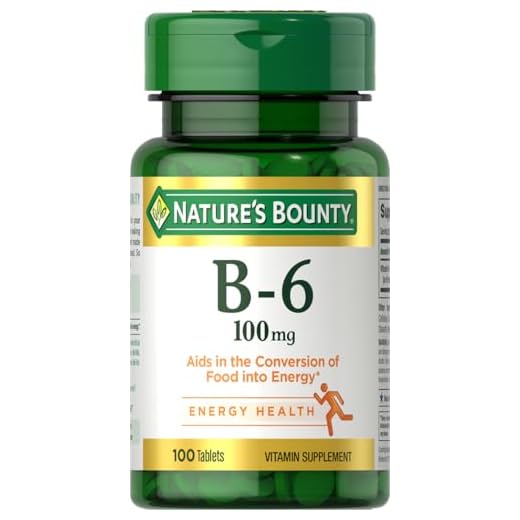



Prenatal vitamins can help alleviate nausea during pregnancy, especially due to their vitamin B6 content. Studies show that taking vitamin B6 up to 100 mg daily may notably reduce nausea symptoms. These vitamins are formulated to meet your increased nutritional needs, which can be beneficial when hormonal changes elevate nausea feelings. Taking your prenatal vitamins with food enhances absorption and may lessen discomfort. Additionally, regular intake of these vitamins guarantees you're covered against potential nutrient deficiencies that could worsen nausea. Discovering more about effective strategies can further support your pregnancy experience.
Key Takeaways
- Prenatal vitamins, particularly those with Vitamin B6, can alleviate nausea symptoms during pregnancy.
- Effective dosages of Vitamin B6 up to 100 mg daily are recommended for nausea relief.
- Taking prenatal vitamins with food enhances absorption and minimizes nausea discomfort.
- Regular intake of balanced prenatal vitamins supports maternal health and improves pregnancy outcomes.
- Consultation with healthcare providers helps tailor vitamin timing and dosage for individual needs.
Causes of Nausea in Pregnancy
Nausea during pregnancy, often referred to as morning sickness, primarily stems from hormonal changes that occur in your body. During the first trimester, levels of hormones such as estrogen, progesterone, and human chorionic gonadotropin (HCG) rise considerably, which can trigger nausea in many pregnant women. About 80% of you may experience this discomfort, with some more severely affected due to genetic predisposition, particularly if there's a family history of severe morning sickness. Additionally, maintaining adequate levels of essential vitamins can play an important role in mitigating these symptoms, as vitamins support healthy fetal growth by providing essential nutrients.
Furthermore, vitamin deficiencies play an important role in the severity of nausea. Deficiencies in vitamins B6, B12, and D, along with minerals like magnesium and zinc, have been linked to heightened nausea symptoms. Addressing these deficiencies can potentially alleviate some discomfort.
Additionally, gastrointestinal factors, such as the presence of H. pylori bacteria, may lead to more severe forms of morning sickness, known as Hyperemesis Gravidarum. It's also important to recognize that anxiety surrounding pregnancy loss can exacerbate feelings of nausea in some pregnant women. Understanding these causes can help you manage nausea more effectively during this vital period.
Role of Prenatal Vitamins
Prenatal vitamins play an indispensable role in supporting the health of both you and your developing baby during pregnancy. Specifically formulated to meet your increased nutritional needs, these vitamins and minerals can help you manage nausea and vomiting, particularly in the first trimester. Research shows that prenatal vitamins containing Vitamin B6 can greatly alleviate nausea symptoms, with dosages up to 100mg proving effective for relief. Additionally, many prenatal vitamins include key ingredients for maternal health like DHA and calcium, which further support overall well-being during pregnancy.
Furthermore, regular intake of high-quality prenatal vitamins is linked to improved pregnancy outcomes, which include reduced nausea. It's essential to recognize that taking these vitamins with food not only enhances iron absorption but also minimizes nausea, making the timing of your intake fundamental. Nutrient deficiencies, especially in B6 and magnesium, are associated with heightened nausea, emphasizing the need for prenatal vitamins to replenish these necessary nutrients.
While a well-balanced diet is critical, prenatal vitamins provide a safety net to guarantee you receive the necessary vitamins and minerals your body requires during this significant time. By incorporating prenatal vitamins into your routine, you may find relief from nausea while supporting your overall health and well-being during pregnancy.
Nutrients That Alleviate Nausea
Many women experience nausea during pregnancy, and certain nutrients have been identified as particularly effective in alleviating these symptoms. Vitamin B6 stands out as a clinically supported option, with dosages of up to 100 mg recommended for symptom relief. This vitamin plays a critical role in metabolic processes and may help reduce nausea considerably. Studies indicate that Vitamin B6 supplementation has been shown to alleviate pregnancy-related nausea and vomiting, providing further support for its use during this time.
Additionally, adequate levels of folic acid are essential not only for fetal development but also for minimizing nausea symptoms. Folic acid's involvement in cellular processes may contribute to improved overall well-being during pregnancy.
Magnesium is another important nutrient; studies suggest that supplementation, especially through topical applications, may help ease nausea and enhance comfort for women dealing with morning sickness.
Nutritional deficiencies, particularly of Vitamin B6, B12, and Magnesium, have been linked to increased nausea, underscoring the importance of prenatal vitamins. These vitamins are designed to provide a balanced mix of essential nutrients, ensuring you maintain adequate levels that support both maternal health and potentially alleviate nausea symptoms. Prioritizing these nutrients through a well-rounded prenatal vitamin can help you manage nausea more effectively during your pregnancy.
Timing and Dosage Recommendations
Finding the right timing and dosage for prenatal vitamins can greatly impact how well you tolerate them, particularly if you're experiencing nausea. Taking your prenatal vitamins with food can enhance absorption and help minimize nausea, as an empty stomach may exacerbate symptoms. If you're sensitive to large pills, consider splitting your dose throughout the day; this can improve tolerance.
Timing can also play a significant role. Some women find that taking their prenatal vitamins in the evening is more manageable than in the morning. To further address nausea, Vitamin B6 supplementation, up to 100 mg daily, is often recommended. It's important to take this consistently to see effective results.
Always consult with your healthcare provider for personalized recommendations on timing and dosage. They can help optimize your prenatal vitamin intake and adjust it based on your unique situation, ensuring you get the nutrients you need while managing symptoms of nausea effectively. Remember, individual experiences vary, so finding what works best for you is key to a smoother pregnancy journey.
Additional Tips for Relief
Managing nausea during pregnancy can be challenging, but several effective strategies can provide relief. First, consider taking prenatal vitamins that contain Vitamin B6, which has been shown to alleviate nausea symptoms considerably. A dosage of up to 100mg may be effective, but it's crucial to consult your healthcare provider or a registered dietitian for personalized guidance.
To enhance the absorption of these vitamins and minimize nausea, consume them with food. If swallowing large pills is a challenge, try splitting the dosage throughout the day. This method can help reduce discomfort and make taking your prenatal vitamins more manageable.
Staying hydrated is another critical aspect of managing nausea. Sipping water regularly can ease symptoms, and combining hydration with your prenatal vitamin intake may offer additional relief. Additionally, if you're experiencing food aversions, focus on bland, easily digestible foods that are appealing to you.
Conclusion
To sum up, while prenatal vitamins can't eliminate nausea entirely, they may provide essential nutrients that help ease symptoms. By ensuring you're getting adequate vitamins like B6 and magnesium, you can support your body during this challenging time. Remember, it's wise to consult your healthcare provider for personalized advice. In the grand scheme of things, taking these steps can help you navigate the rocky road of pregnancy with a bit more ease and comfort.



